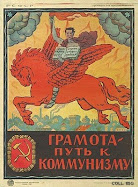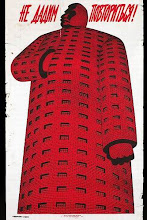 The initial reports in the American press were worthy of Pravda; all details of the story that put the U.S.'s emerging ally in a bad light were omitted and all facts that fit the Russia-as-brutish-bully narrative were amplified. By the last couple of days, the analysis - at least in the New York Times, Christian Science Monitor, and Slate - was more balanced, and included mention of the fact that this latest round of fighting would not have occurred but for Georgia's military incursion into South Ossetia (complete with Georgian troops shelling civilian areas of the South Ossetian capital, Tskhinvali). And Georgia's receipt of military aid and training from the United States - including support for its bid to join NATO, surely emboldened the Caucasus nation. Military aid that came complete with on-the-job training in Iraq, where tiny Georgia (population 4.6 million - about the size of South Carolina) until recently had the third largest contingent in the "coalition of the willing" - behind only the U.S. and Britain.
The initial reports in the American press were worthy of Pravda; all details of the story that put the U.S.'s emerging ally in a bad light were omitted and all facts that fit the Russia-as-brutish-bully narrative were amplified. By the last couple of days, the analysis - at least in the New York Times, Christian Science Monitor, and Slate - was more balanced, and included mention of the fact that this latest round of fighting would not have occurred but for Georgia's military incursion into South Ossetia (complete with Georgian troops shelling civilian areas of the South Ossetian capital, Tskhinvali). And Georgia's receipt of military aid and training from the United States - including support for its bid to join NATO, surely emboldened the Caucasus nation. Military aid that came complete with on-the-job training in Iraq, where tiny Georgia (population 4.6 million - about the size of South Carolina) until recently had the third largest contingent in the "coalition of the willing" - behind only the U.S. and Britain.I imagine that the Bush administration's finger wagging about the need to respect a sovereign nation's borders and the moral imperative not to use disproportionate force will be met by Russia with shoulders shrugging and finger pointing to a map of Iraq. "International law doesn't envision double standards," Medvedev reportedly said in response to western pressure to halt its military operations in Georgia. Indeed.
But the headlines announcing a return to cold war tensions miss their mark.

Russia is clearly stronger now than it was ten or fifteen years ago (and this year resumed its tradition of showing off its massive military hardware on the annual victory day parade in Red Square), but that's where the cold war analogy ends. We are not living in a bipolar world. Whatever differences our short-sighted U.S. administration may have with Putin's Russia, they are not rooted in a deep, ideological struggle or a contest for world influence. Russia is asserting its power on its doorstep, not in far away neighborhoods of
 the globe. Moreover, Georgia, went out of its way to thumb its nose at Russia: it lobbied hard for NATO membership (an alliance built for the sole purpose of countering Soviet Russia's strength in Europe) and has sought and received military aid and training from the United States. It is true that Tony Blair was mocked for being Bush's "poodle" in the run up to and participation in the Iraq fiasco. But if there was a contest for the world leader who is the most obsequious lapdog for Bush, President Mikheil Saakashvili of Georgia would win best in show. After all, is there any other country that has named a major boulevard in its capital for W.?
the globe. Moreover, Georgia, went out of its way to thumb its nose at Russia: it lobbied hard for NATO membership (an alliance built for the sole purpose of countering Soviet Russia's strength in Europe) and has sought and received military aid and training from the United States. It is true that Tony Blair was mocked for being Bush's "poodle" in the run up to and participation in the Iraq fiasco. But if there was a contest for the world leader who is the most obsequious lapdog for Bush, President Mikheil Saakashvili of Georgia would win best in show. After all, is there any other country that has named a major boulevard in its capital for W.?So what are America's interests in Georgia? Not surprisingly, Bush & Co. say that we are supporting a young democracy. A more likely explanation comes from geography - Georgia is an important conduit for oil and gas from the Caspian sea, providing the only path for pipelines bypassing both Russia and Iran en route to Turkey, Europe and the west.
 And while it is important to support democracies, U.S. military aid and training to Georgia predated the Rose Revolution that brought Saakashvili to power, begging the question of what our real interests in the region are. The question remains: are those interests worth an all out shooting war with Russia? Imagine if Europe had given in to Bush's demands to have Georgia join NATO - the U.S. and its allies would now be obligated to rush to Georgia's aid, even if this current conflict was sparked by Saakshvili's imprudent incursion into Ossetia.
And while it is important to support democracies, U.S. military aid and training to Georgia predated the Rose Revolution that brought Saakashvili to power, begging the question of what our real interests in the region are. The question remains: are those interests worth an all out shooting war with Russia? Imagine if Europe had given in to Bush's demands to have Georgia join NATO - the U.S. and its allies would now be obligated to rush to Georgia's aid, even if this current conflict was sparked by Saakshvili's imprudent incursion into Ossetia. "John McCain says that Americans are supporting Georgia. We are Georgians today. Everybody is a Georgian today." So sayeth Saakashvili today in Tblisi. He should know, because McCain's chief foreign policy adviser was, until very recently, a chief lobbyist in D.C. for the government of Georgia. Since 2002, Randy Scheunemann's firm, Orion Strategies, has pocketed $900,000.00 (and that's Dollars, not Rubles) from the Georgian government to help press its interests in Washington (according to Talking Points Memo). I wonder who whispered in McCain's ear on a key foreign policy point this time? [Pictured left: Sen. Lieberman gently correcting McCain after he said that Iran was training Sunni insurgents]
"John McCain says that Americans are supporting Georgia. We are Georgians today. Everybody is a Georgian today." So sayeth Saakashvili today in Tblisi. He should know, because McCain's chief foreign policy adviser was, until very recently, a chief lobbyist in D.C. for the government of Georgia. Since 2002, Randy Scheunemann's firm, Orion Strategies, has pocketed $900,000.00 (and that's Dollars, not Rubles) from the Georgian government to help press its interests in Washington (according to Talking Points Memo). I wonder who whispered in McCain's ear on a key foreign policy point this time? [Pictured left: Sen. Lieberman gently correcting McCain after he said that Iran was training Sunni insurgents]I don't doubt that Russia used "disproportionate" force in its counter-offensive in Georgia. But the Georgian gambit -- that the U.S. and other western countries would somehow come to its aid -- was foolish and irresponsible. Bush and the Neocons bear a great deal of responsibility for this foolishness (an editorial in the U.S. News & World Report summarizes U.S. complicity in the whole affair), but as usual, they will not be the ones to pay the price. They can wring their hands and call for a stronger response against Russia, while Georgian soldiers, in desperate retreat, wonder aloud what happened to the implicit promise of American support.
The Russian government said clearly, back when the U.S. and many European nations were embracing Kosovo's independence from Serbia, that it would in turn recognize the right of the people of South Ossetia and Abkhazia to self determination, to be independent from Georgia. It was Georgia, however, that forced Russia's hand. It was Georgia's decision to launch a preemptive strike in Ossetia, knowing full well that doing so would put Russian peace keeping soldiers and Russian citizens in harm's way. The end result will likely be the annexation of both provinces into Russia, and it is not clear that there is any way that can be stopped.
The point of this post is not to apologize for Russia's military actions in Georgia (I do not condone bombing or shelling civilian areas under any circumstance - and this is certainly a war that could have easily been avoided if calmer heads had prevailed on both sides), nor to agree with Russia's calls to try Saakashvili for war crimes for Georgia's shelling of civilian areas of Ossetia. The Russian newspaper Novaya Gazeta, one of the few independent voices in the Russian media, has a good column on the conflict, titled "Madness". Putting the conflict in the context of international law, it aptly reflects on the illegal actions taken by all sides (including hardliners in South Ossetia, who certainly had a role in provoking the Georgian military action). Speaking about all sides, the paper writes:
Может быть, именно это безумцы назовут победой?!
Их победа — это унижение и боль, невосполнимые потери и страдания, попрание свобод и права на жизнь, уловки, хитрости, подлости и грязные приемы, приведшие к разрушениям и гибели людей.
Translation: Maybe these madmen will call this victory?!Their victory is humiliation and pain, irreplaceable losses and suffering, trampling on freedom and the right to life, subterfuge, monkey business, baseness, dirty tricks, bringing to people death and destruction.
The translation may not be smooth, but you get the idea. This is a war that has brought great loss on Georgia and the people of South Ossetia, with no good purpose - but in no reasonable way does it herald a return to the cold war.









1 comment:
Unfortunately, I just saw that Obama has now gone on record saying that maybe Georgia joining NATO is a fine idea......
Post a Comment